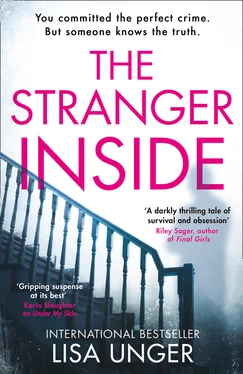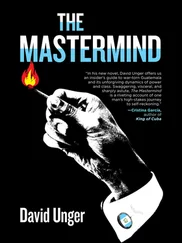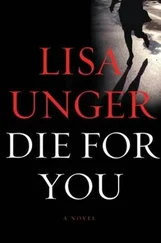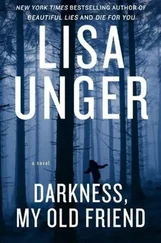Tess was making a small sound. The three of them joked that Tess was Piglet, and Lara was Tigger. And Hank, of course, was Eeyore, sometimes Pooh. At another moment, she would have laughed about that sound Tess was making. Except it wasn’t funny.
“He won’t hurt you,” said the man.
He was disgusting. Big and slovenly, dressed all in black, with a bushy, unkempt beard and thick black-rimmed glasses. With effort, he’d pulled himself from his crouch. He was enormous, too, well over six feet tall.
“Call him back,” she said, this time making her voice deeper and louder, the way her mother had told her. Say no like you mean it, Mom had taught her. A certain kind of man doesn’t hear any other tone. “No” shouldn’t ask for permission to exist. There’s no question mark after it.
But the man just laughed. It was almost a giggle, childish. She and Tess had their arms looped together, and in unison they started stepping backward, eyes trained on that dog. As they put distance between them, it bared its teeth, growl growing deeper. Tess started to cry.
“Tess, don’t run,” she whispered. “Whatever you do. Don’t run.”
“Oh,” said Tess, a single note of pure fear. “Oh.”
“You better stop moving,” said the man. He lumbered his way up the bank. He would never be able to catch either one of them; she could see that. That’s why he had the dog. Tess had practically fused her body to Rain’s, and Rain gripped her tight. Her heart was a bird in the cage of her chest, throat sandpaper. Acutely she felt her own smallness, their isolation. She looked around for help. They were alone.
The black dog moved closer. Rain felt Tess pull away, start to unlace her arm. She tried to hold on to her, but her friend had gone blank with terror. Flight. That’s what Rain saw in her friend’s face, the blank terror of someone about to flee.
“Go, Wolf.” His voice was a stern command.
When the dog started moving, Tess broke and ran. Rain tried to grab for her friend, but she couldn’t hold her. The dog moved past Rain in a black blur. The man just stood on the edge of the bridge, his face blank, unreadable. His breath came ragged, a horrible wheeze.
What happened next was just a series of ugly sounds and images in Rain’s memory. Tess yelling as the dog grabbed hold of her calf, taking her down. Rain running toward them. Fur and flesh under her fingers as she tried to pull the dog off Tess, beating at the soft fur, feeling the muscles under her fists. A yelp, a sound that was nearly a roar, then teeth on her arm, then on her leg, a terrible tearing of her skin.
Tess scrambling away, blood trailing. Her own screaming. Then a vise grip on her shoulder, fingertips hard as stone. She was knocked to the ground, looking up into that face, moon-white above the beard, eyes glittering with glee. It almost looked like he was going to scratch his shoulder, the way he moved his arm in that direction. But the backhand that connected with her jaw, shattering it, knocked her out cold.

Rain took a deep breath, coming back to the present—her bedroom, Greg’s deep-sleep breathing. She moved in close to her husband and he wrapped her up in his arms without waking up. She held on tight, centered herself, matched her breathing to his.
I am not that girl. I am not in that place. It is behind me, part of my past. I survived.
Three a.m.: the hour of alchemy. Not the dead of night where sleep might fall back over her like a cloak, the light and energy of morning still distant, too far to draw her into the next day. Here, at 3 a.m., all her best ideas and her worst fears, worries, doubts mingled, an acidic potion of sandman dust, and whispers, and bad imaginings. Henry’s words—like someone else we know—an earworm that moved through her brain.
Eugene Kreskey was never far, no matter that he was dead, or that she’d buried him deep. He was always there.
She reached for the monitor, switched on the screen and looked at Lily, so peaceful, so safe and loved beyond measure. Her heart rate started to slow. So much therapy; so much talking. It was her father who suggested that she put that day in a box and lock it up tight, and never, ever open that lid.
“My father—who you never knew—he drank,” he told her. This was months after. Her grades were down; she was waking nightly in terror. She was having daily meltdowns over nothing. It wasn’t just the day in the woods, the horror of it. It wasn’t just her injuries—a jaw that clicked even after it healed, the scars from the dog on her leg; it was the loss of everything—Tess, Hank, the girl she was. She couldn’t figure out how to fit back into the world.
“When he did, he was a different man,” her father said. “He hurt me—badly.”
He did a thing he’d always done, circled one forearm with the long fingers of his other hand and rubbed. That night she noticed a scar, a deep gouge in the skin of his wrist.
The idea that someone could hurt her father had baffled Rain. How did you hurt the moon? That he had been a boy once, vulnerable, seemed like a lie, like the stories he made up for her about boys and girls who built jetpacks that took them to Saturn, who hunted dragons in the woods, who rode dolphins to a secret world under the sea.
“I could think about those times, about who he was and what he did, and let them define me,” he said. “But I don’t. I lock those memories away deep inside where they can’t hurt me.”
“How?”
“When they come,” he said, “you imagine them written on paper. Then you fold that paper and shut it inside the box. Lock it and throw the key down a well.”
She tried to imagine doing that. Did she feel better? Maybe a little.
She’d never met her father’s parents; they’d both died before she was born. There were some grainy black-and-white photos, a wedding portrait. They looked thin-lipped and severe.
“Do you hate him?”
Rain had so much hate in her heart after that day in the woods. It was a monster just barely caged in her brain, raging, knocking things around. She didn’t know how she could live with that much rage in her; it was a black fog over her life. Everything that once seemed beautiful or fun or funny was just ash. Who would she be now if her parents hadn’t gotten her the help she needed? She didn’t know, didn’t want to know.
Her father took off his glasses, those eternal round specs. “I did hate him—then. But now I understand what it’s like to have demons. To let them control you. I forgive him.”
He looked at her uncertainly, like maybe he was worried he’d said too much. It was late; he’d woken up with her after her nightmare, made her some warm milk. Now they sat on the porch together, looking up at the starry sky.
“I can’t forgive him,” she said. “I won’t.”
“No,” he said gravely. “That’s different. I won’t forgive Eugene Kreskey either. How can we?”
He reached for her hand. His hand was big and strong, enveloping her own.
“Look,” he said. “Let’s keep it practical. When the memories come, say this to yourself—I am not that girl. I am not in that place. It is behind me, part of my past. I survived because I am strong.”
But it wasn’t true. She’d survived because she was weak. She’d tried to explain this to her therapist, to her parents. No one seemed to understand that. You were a child, Lara. What else could you have done? She could imagine at least a million scenarios where things could have gone differently. Still, that mantra, it worked. It never failed to give her a little jolt, a boost out of the mire of her memories. Rain guessed the old man wasn’t a total failure as a father. Maybe she was too hard on him.
Читать дальше













